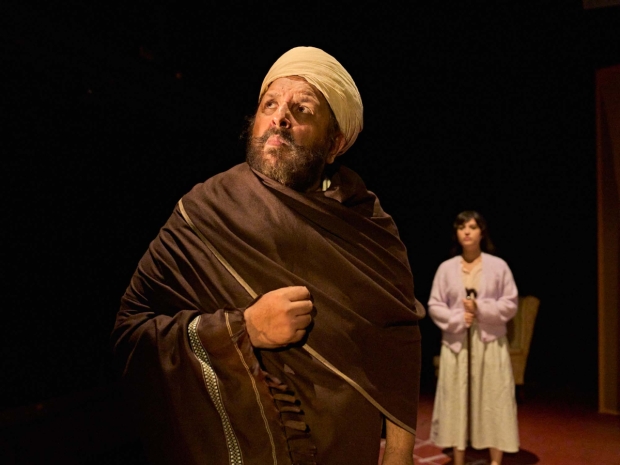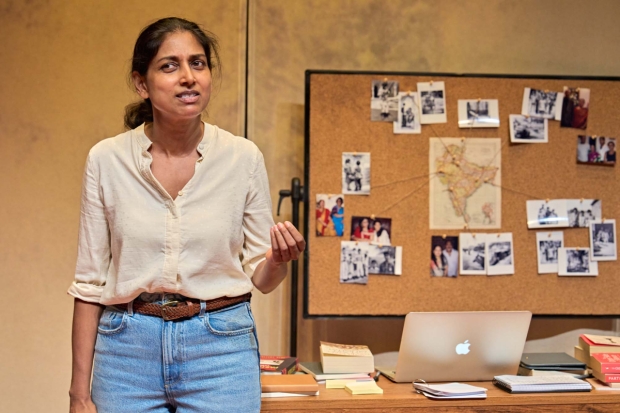”Silence” at the Donmar Warehouse – review

© Manuel Harlan
Yet the collective trauma caused is rarely discussed. A silence descends upon it, both institutional and personal. This co-production by the Donmar and the theatre company Tara Theatre, dedicated to championing South Asian voices, attempts to address that by putting individual stories of partition centre-stage.
It takes a simple and direct approach. Four writers – Sonali Bhattacharyya, Gurpreet Kaur Bhatti, Ishy Din, and Alexandra Wood – have adapted Kavita Puri’s book Partition Voices: Untold British Stories, oral histories collected from British Asians who left India to seek new lives. On Rose Revitt’s stage, dominated by canvas screens on which archive photographs are projected, a fictional journalist Mina (Nimmi Harasgama) leads us through her research, each of the stories told as a first -person memory by different actors including Renu Brindle and Bhasker Patel.

© Manuel Harlan
Their recollections cut to the heart. “Old friends in the morning, wanting us dead in the afternoon” one man recalls, in shocked tones, remembering how the Hindus in his village were suddenly under threat from their Muslim neighbours. But he also recalls how Muslim families sheltered and saved Hindus, allowing them to escape.
Another remembers his best friend, who suddenly has to flee for his life when armed Hindu nationalists arrive on his grandfather’s farm, one of the 12 million migrants of 1947, moving across the newly formed borders. He describes the trains they watched together suddenly turning red as they cross the landscape, coloured by the blood of people falling from the sides in their desperate bid to escape.
Another woman, who has agreed to share her testimony, falls silent when faced with her memories of the way that women’s bodies became a battleground in the conflict. The fictional writer’s fictional father is full of shame because he joined the Hindu nationalist militias and shouted anti-Muslim slogans.
Themes emerge: the way that governments always want to divide in order to rule, stoking the fuel of religious difference into new hates; the sense that cultural cohesion, a shared sense of place can override any sense of division. “You can’t divide the air,” one muses. “Same people, same place, same food, but different religions” says another, talking of the dislocation he felt.
The stories are intensely moving. Yet Tara artistic director Abdul Shayek directs with a documentary eye, letting each character speak plainly, not adding additional emotion. It’s an honourable approach but not one that lets Silence fly as drama. There’s a sense of reticence in this production and I couldn’t help wondering if it might not have been better to let one writer shape the story, rather than relying on this patchwork of tales. Nevertheless, Silence is essential viewing – an act of collective remembering that propels a key moment in history back into the spotlight, where it belongs.












